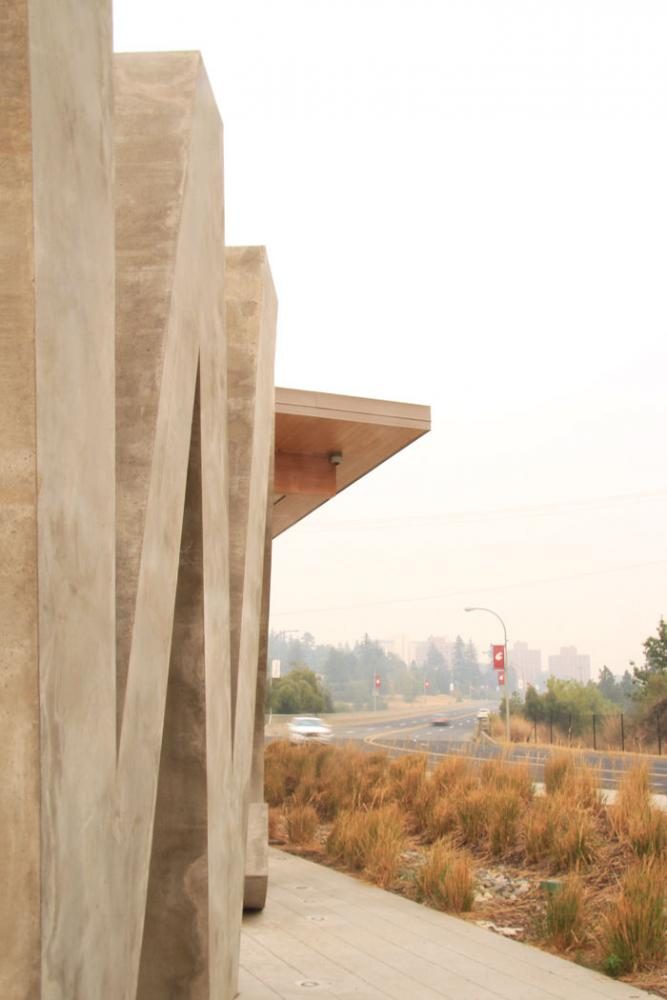Health & Wellness provides answers to smoke hazards while UREC and Cycling Club organizations react to widespread health concerns
August 25, 2015
Smoke is a mixture of gasses and fine particles that can be harmful to individual health. Wildfire smoke in particular contains a toxic gas called carbon monoxide, said Bruce Wright, the executive director of Health and Wellness Services.
Pullman, like many other cities in the Pacific Northwest, has radically transformed with hazy views and a blood-red moon. But the environment is not the only thing physically changing as a result.
“These gases and particles are inhaled deep into your lungs and can cause irritation to eyes, noses and throats,” Wright said. “Exposure to wildfire smoke may make it harder to breathe or worsen existing health conditions affecting the lungs and heart. Older adults and children are particularly likely to be affected by smoke.”
The severity of these symptoms is widely unknown, in spite of this information being available to the public, and has resulted in some people being undeterred.
While the Pullman-Moscow Regional Airport weather sensor reports that visibility in Pullman dropped to one fourth of a mile in distance at times on Sunday, students were still last-minute shopping all about town. At the Lentil Festival Friday night, the beer garden was full near Reaney Park.
Noticeable precautions were taken by organizers for University Recreation and the Cycling Club, however. A couple of events were either canceled or postponed as a result of the weather conditions.
Both the Cycling Club’s Tour de Lentil ride on Saturday and the Color Run on Sunday were either postponed or canceled as a result of the smoke. The UREC’s Backyard Bash had to be relocated indoors. Several outdoor trips were impacted by the air conditions as well.
Over 100 volunteers were signed up for the Tour de Lentil ride, and several hundred were expected for the Color Run, many of which might not be available for the rescheduled times.
“Having to basically reset up the events takes a lot of time on our part,” Joanne Greene, UREC Director of Programming, said.
Further postponements of the rescheduled events, as well as those occurring in the coming week, will depend upon whether the air returns to the healthy range.
“For anything outdoors we’ll go day by day and within a few hours prior to the event because depending on wind the conditions can change,” said Greene. “We’ll be watching closely and modifying outdoor events as needed.”
Wildfires throughout northern Idaho will continue to contribute to the heavy smoke over Pullman.
Dry thunderstorms forecasted for Tuesday bring the chance of more fires started by lightning strikes in the Palouse and other nearby areas, which could bring more smoke in the air.
The Washington State Department of Ecology advised precautions such as staying indoors, keeping activities light, and keeping windows closed if it is not too hot. Air conditioners are the suggested method to re-circulate air indoors and close the outside air intake. N-95 or N-100 respirator masks are encouraged for anyone who must be outdoors.
Wright said that precautions like these are important and necessary. Health and Wellness advocates some smoke safety advice of their own.
“Use public transportation rather than walking or biking,” he said. “People who have asthma or other respiratory conditions should visit a health care provider, and make sure to check with their health care provider prior to wearing a mask if they have a chronic heart or lung condition.”
But the smoke itself will not result in any significant damage to individual health.
“The severity of smoke-related health problems depends on the concentration of smoke and length of exposure, as well as your individual age and health status,” he said.
Anyone concerned with the smoke impacting their health and impacting their ability to attend classes, they are advised to contact the Office of the Dean of Students at (509) 335-5757 or their professors. WSU has asked all faculty members to be flexible and understanding in regards to air quality-related health issues.





















